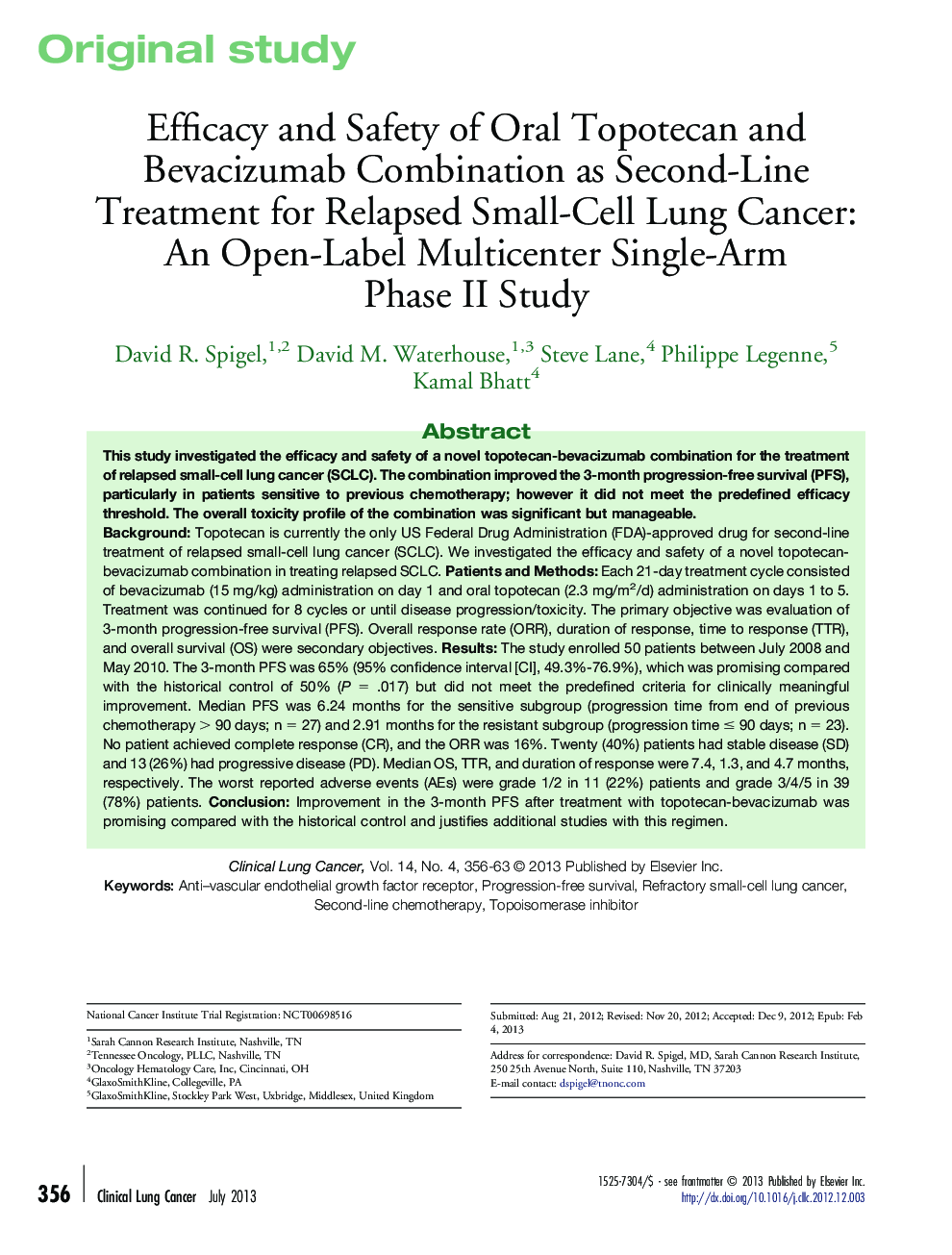| کد مقاله | کد نشریه | سال انتشار | مقاله انگلیسی | نسخه تمام متن |
|---|---|---|---|---|
| 2752754 | 1149589 | 2013 | 8 صفحه PDF | دانلود رایگان |

BackgroundTopotecan is currently the only US Federal Drug Administration (FDA)-approved drug for second-line treatment of relapsed small-cell lung cancer (SCLC). We investigated the efficacy and safety of a novel topotecan-bevacizumab combination in treating relapsed SCLC.Patients and MethodsEach 21-day treatment cycle consisted of bevacizumab (15 mg/kg) administration on day 1 and oral topotecan (2.3 mg/m2/d) administration on days 1 to 5. Treatment was continued for 8 cycles or until disease progression/toxicity. The primary objective was evaluation of 3-month progression-free survival (PFS). Overall response rate (ORR), duration of response, time to response (TTR), and overall survival (OS) were secondary objectives.ResultsThe study enrolled 50 patients between July 2008 and May 2010. The 3-month PFS was 65% (95% confidence interval [CI], 49.3%-76.9%), which was promising compared with the historical control of 50% (P = .017) but did not meet the predefined criteria for clinically meaningful improvement. Median PFS was 6.24 months for the sensitive subgroup (progression time from end of previous chemotherapy > 90 days; n = 27) and 2.91 months for the resistant subgroup (progression time ≤ 90 days; n = 23). No patient achieved complete response (CR), and the ORR was 16%. Twenty (40%) patients had stable disease (SD) and 13 (26%) had progressive disease (PD). Median OS, TTR, and duration of response were 7.4, 1.3, and 4.7 months, respectively. The worst reported adverse events (AEs) were grade 1/2 in 11 (22%) patients and grade 3/4/5 in 39 (78%) patients.ConclusionImprovement in the 3-month PFS after treatment with topotecan-bevacizumab was promising compared with the historical control and justifies additional studies with this regimen.
Journal: Clinical Lung Cancer - Volume 14, Issue 4, July 2013, Pages 356–363